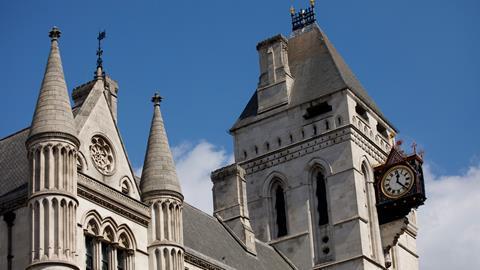A barrister has had his suspension halved after succeeding in a High Court appeal against professional misconduct sanctions.
The Bar Tribunals & Adjudication Service found three of seven charges of professional misconduct against David Owusu Yianoma proved. The charges related to ‘essentially the same misconduct’ which Yianoma admitted - ‘reckless misleading of the court’ as well as ‘reckless failure’ to ensure his advice on an appeal was correct.
The tribunal suspended Yianoma from practice for 12 months concurrently on each of the three proven charges. He was also ordered to pay costs of £5,000 including VAT.
Yianoma appealed, arguing the sanction was ‘too harsh’.
The judgment in David Owusu Yianoma v Bar Standards Board acknowledged some of the ‘important features’ of Yianoma’s case including his honest but erroneous belief that he had complied with the so-called McCook guidance on consulting previous counsel. 'He now understands and accepts that at that time, he did not in fact know precisely what McCook required’.
R v McCook [2014] included advice for criminal law practitioners that ‘it is always desirable to consult those who have acted before in a case where fresh counsel and solicitors have been instructed’ and ‘where fresh solicitors or fresh counsel are instructed, it will henceforth be necessary for those solicitors or counsel to go to the solicitors and/or counsel who have previously acted to ensure that the facts are correct, unless there are in exceptional circumstances good and compelling reasons not to do so’.
Mr Justice Calver found that, though the tribunal was ‘entirely correct to mark the gravity’ of Yianoma’s reckless conduct with a suspension, the case was of moderate culpability and the misconduct ‘fell within the middle range of seriousness rather than the upper range’.
He added: ‘I consider that imposing a period of suspension of as much as 12 months was clearly inappropriate in all the circumstances and the sanction which most appropriately fulfils the relevant purpose in the present case is to impose a period of suspension of 6 months.’



























